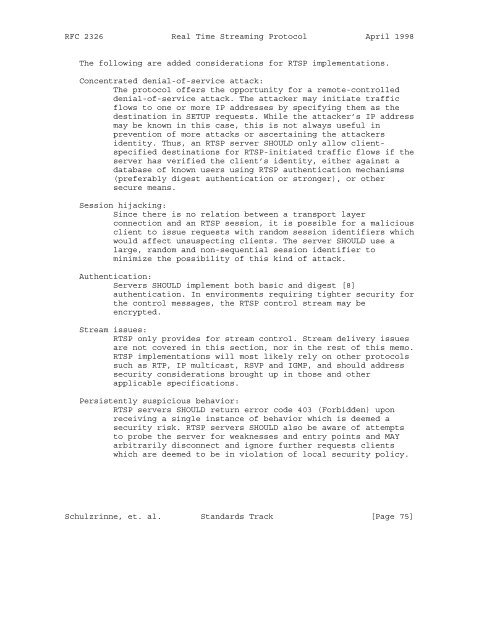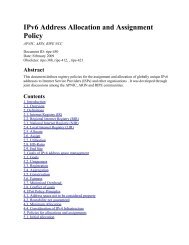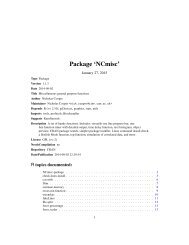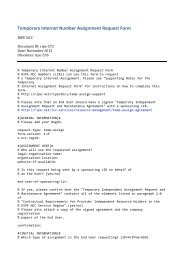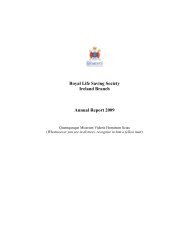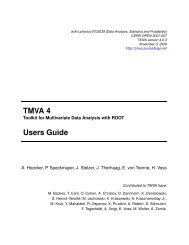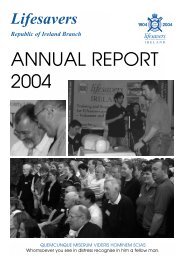Standards Track A. Rao Netscap - RFC Editor
Standards Track A. Rao Netscap - RFC Editor
Standards Track A. Rao Netscap - RFC Editor
You also want an ePaper? Increase the reach of your titles
YUMPU automatically turns print PDFs into web optimized ePapers that Google loves.
<strong>RFC</strong> 2326 Real Time Streaming Protocol April 1998The following are added considerations for RTSP implementations.Concentrated denial-of-service attack:The protocol offers the opportunity for a remote-controlleddenial-of-service attack. The attacker may initiate trafficflows to one or more IP addresses by specifying them as thedestination in SETUP requests. While the attacker’s IP addressmay be known in this case, this is not always useful inprevention of more attacks or ascertaining the attackersidentity. Thus, an RTSP server SHOULD only allow clientspecifieddestinations for RTSP-initiated traffic flows if theserver has verified the client’s identity, either against adatabase of known users using RTSP authentication mechanisms(preferably digest authentication or stronger), or othersecure means.Session hijacking:Since there is no relation between a transport layerconnection and an RTSP session, it is possible for a maliciousclient to issue requests with random session identifiers whichwould affect unsuspecting clients. The server SHOULD use alarge, random and non-sequential session identifier tominimize the possibility of this kind of attack.Authentication:Servers SHOULD implement both basic and digest [8]authentication. In environments requiring tighter security forthe control messages, the RTSP control stream may beencrypted.Stream issues:RTSP only provides for stream control. Stream delivery issuesare not covered in this section, nor in the rest of this memo.RTSP implementations will most likely rely on other protocolssuch as RTP, IP multicast, RSVP and IGMP, and should addresssecurity considerations brought up in those and otherapplicable specifications.Persistently suspicious behavior:RTSP servers SHOULD return error code 403 (Forbidden) uponreceiving a single instance of behavior which is deemed asecurity risk. RTSP servers SHOULD also be aware of attemptsto probe the server for weaknesses and entry points and MAYarbitrarily disconnect and ignore further requests clientswhich are deemed to be in violation of local security policy.Schulzrinne, et. al. <strong>Standards</strong> <strong>Track</strong> [Page 75]


